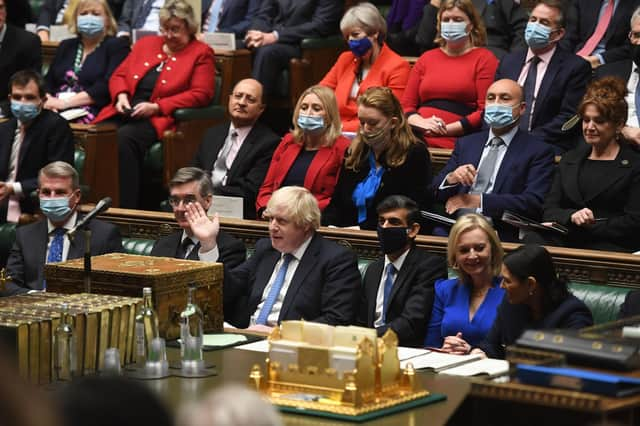Tory MPs are uneasy with Boris but a divorce is not in the post - Stephen Bush


Most Tory MPs expect the party will be re-elected come the next election. Most concede that their best electoral prospect is the present incumbent. The median Conservative MP thinks that the party will be in office until at least 2029. Yet they are worried that they won’t do very much in that time: that when the history books come to be written, very little will be said about what a Johnson-led government actually accomplishes in office.
A Tory government that does very little in office other than prevent more radical parties occupying it: in times past, the Conservative party used to call that a victory. But for a large chunk of the modern Tory party, inaction is a form of defeat, particularly when this particular type of inaction means presiding over the highest tax burden in close to 70 years, an increase in public spending, and a form of Brexit that in practice seems to mean more, not less regulation and a bigger rather than a smaller state.
Advertisement
Hide AdAdvertisement
Hide AdOf course, all of this should have been pretty obvious to anyone who had spent any time at all looking at Boris Johnson’s career. His tenure as Mayor of London was notable for the fairly high degree of continuity between it and his Labour predecessor. He achieved very little, other than some eye-catching infrastructure projects (the cable car out in East London is a very fun, low-cost day out if you have small children or you are, like me, childish and fond of high altitude rides over London) and a genuine commitment to increasing the number of people walking and cycling to work.
And again, as Prime Minister, his biggest decisions have been to oversee the first real-terms spending increase for most of the state since Labour left office, and he has had a genuine and positive commitment to increasing the number of people walking and cycling to work. (As yet, he has yet to commission a cable car running from one end of the country to another, but based on his previous enthusiasm for a bridge all the way to Ireland, it’s probably only a matter of time.)
In addition, the promises that he made to the country in 2019 pretty much all pointed in one direction: he committed to increasing the number of hospitals built, the number of police officers recruited, and to spend more on schools, too. Very little about what Johnson has done in office is surprising. Even his bad speech to the CBI wasn’t really new: the biggest difference is that usually when the Prime Minister stumbles in a speech the audience is more supportive.
Of course, most Tory MPs backed Boris Johnson out of expediency rather than affection. And they knew, too, that tactically, to win the 2019 election, they essentially needed to be able to promise voters who wanted Brexit but were tired of cuts to public spending that those cuts were coming to an end.
Now, like someone who marries someone because they find them physically attractive only to realise that they can’t stand being with someone who they can’t have a decent conversation with, Conservative MPs are uneasy: but they don’t want a divorce. They just want someone to save them from their plight.
But their real problem is that the case for Boris Johnson hasn’t gone away: the Tories are, still, a political party whose electoral interests run through winning over Leave voters, people in small towns and people without degrees, all of which forces them into a position where they have to be considerably less radical than they were when David Cameron was Prime Minister. But just as the median Conservative MP doesn’t like where they are at the moment, they certainly don’t want to have to justify a fresh round of cuts to the country. In fact, some of their biggest policy objections to the current government are that it is not generous enough: that was the cause of the recent rebellion over social care.
The trouble is that the Conservative party is glad that Brexit has happened but doesn’t want to be a party that is reliant on the voters that made Brexit happen. They don’t want to be a party that raises taxes but they don’t want to have to defend spending cuts. And so they fret about the Prime Minister and engage in fantasies that a change of faces around the Cabinet table or in his Downing Street team will make those problems and trade-offs go away. But Johnson’s premiership and its problems are a product of those trade-offs, not their cause, and the difficult truth for Tory MPs is they will be stuck with those for a lot longer than they are stuck with the present Prime Minister.
Stephen Bush is political editor of The New Statesman magazine
